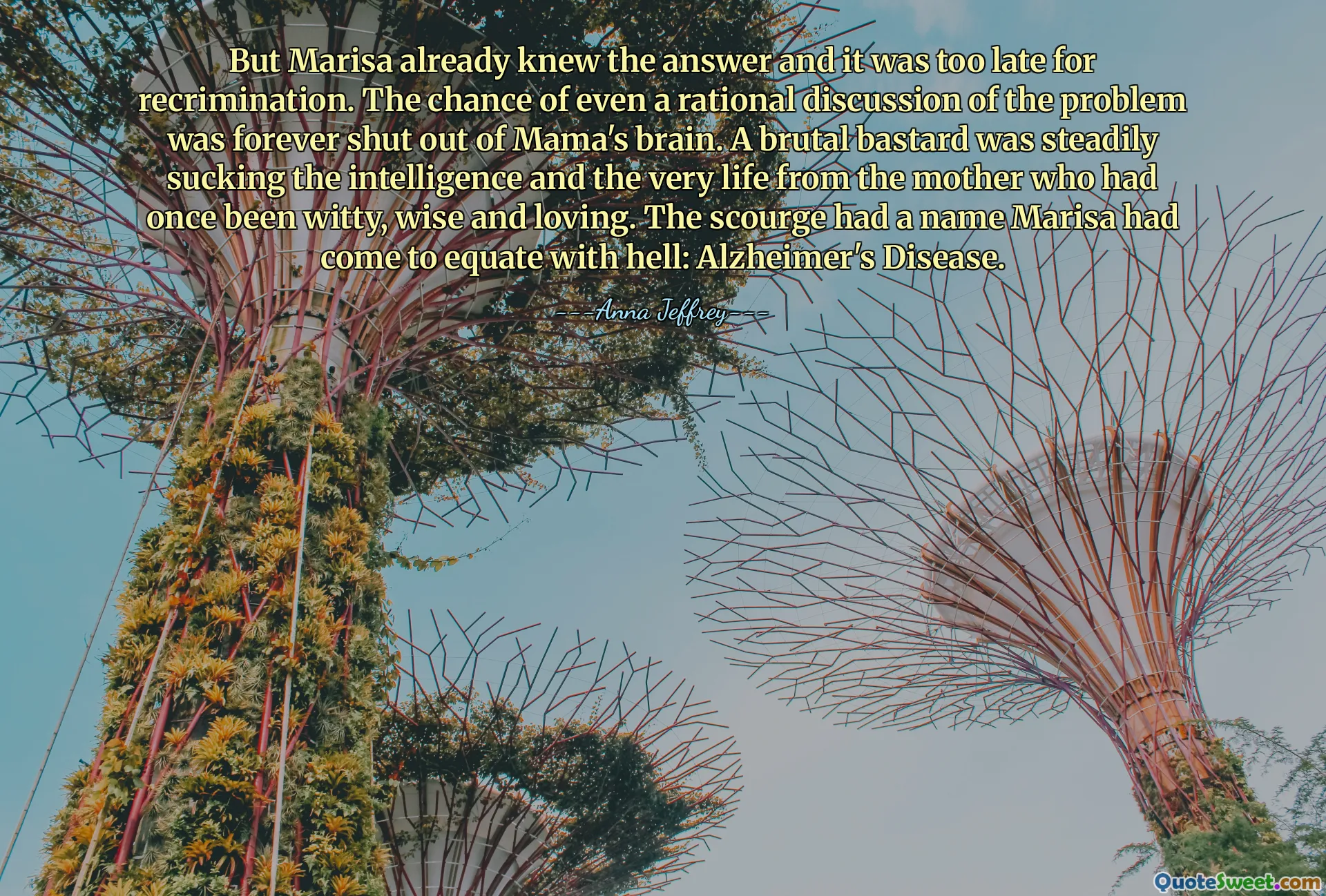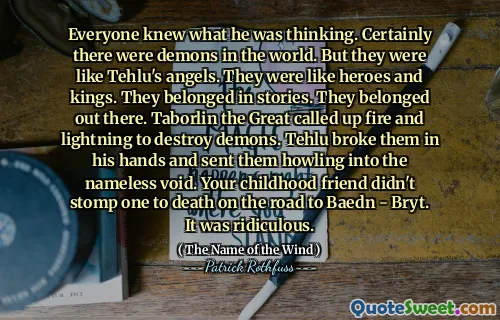
But Marisa already knew the answer and it was too late for recrimination. The chance of even a rational discussion of the problem was forever shut out of Mama's brain. A brutal bastard was steadily sucking the intelligence and the very life from the mother who had once been witty, wise and loving. The scourge had a name Marisa had come to equate with hell: Alzheimer's Disease.
This poignant excerpt vividly captures the devastating impact of Alzheimer's disease on an individual and their loved ones. The narrative paints a heartbreaking picture of how the disease erodes not just memory and cognition, but the very essence of a person's identity. Marisa recognizes the inevitable loss and accepts the futility of seeking rational explanations or solutions once the disease progresses. The phrase 'a brutal bastard' underscores the cruel, merciless nature of Alzheimer's, capturing the emotional pain and helplessness of witnessing someone diminish. It's a stark reminder of the silent toll that neurodegenerative illnesses take on families—stripping away their shared history, love, and connection gradually yet inexorably. The depiction of the mother as once witty, wise, and loving, now being overtaken by a 'scourge,' emphasizes how profound the transformation is—a loss of personality and self that is almost impossible to bear. This narrative elicits empathy from the reader, prompting reflection on the importance of compassion, early diagnosis, and research to combat such diseases. It also highlights the critical need for support systems for families facing similar realities. Overall, it’s a deeply emotional and honest portrayal of the devastation caused by Alzheimer's, serving as both a memorial to what is lost and a clarion call for continued efforts in understanding and fighting the disease.











